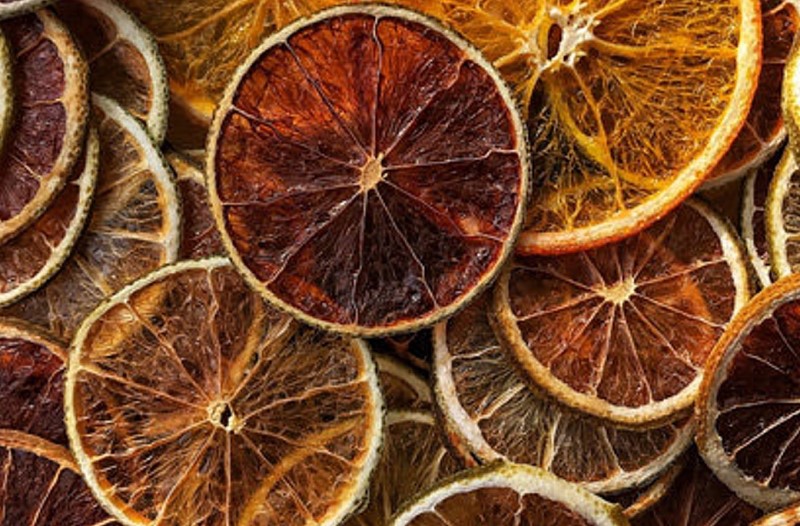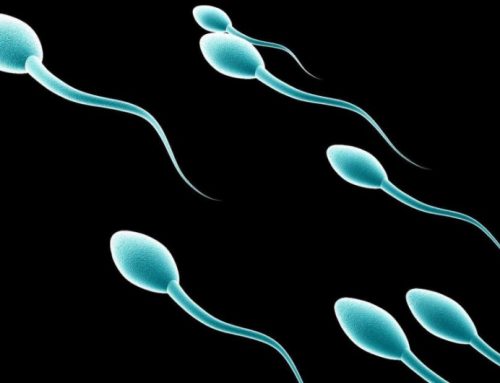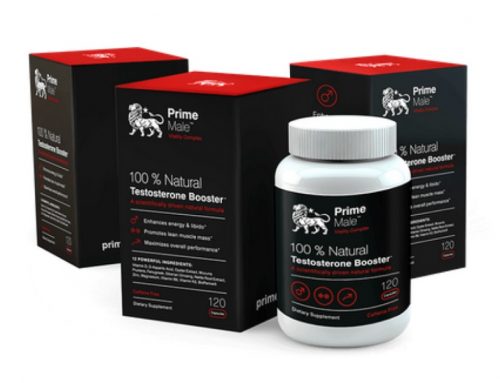Dehydration, a physical dysfunction manifested with severe symptoms of dizziness, nausea, fatigue and weakness, could even develop severe muscle cramps in the person affected.
Is this reminding you of something?
Does this ring a bell?
There are numerous times you felt uncomfortable during the summer vacation or even in the gym workouts.
You might have forgotten to provide your organism with the water required.
It’s about time to learn and to “listen” and understand your body for preventing or dealing with cases of dehydration.
Dehydration: Is it as rare as we think?
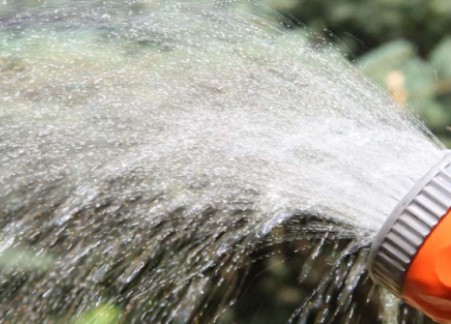
Many people think that dehydration is just a “summer issue”, always manifested with extreme physical phenomena (such as those mentioned above).
Let’s reveal the truth of another myth.
It is true that dehydration is more likely to occur during the “hot” summer months, but this is not absolute.
To start, here is a scientific fact: The vast majority of the human body (almost 50 to 70%) is made up of water.
When the body’s water levels decrease significantly (for various reasons to be examined later) then we talk about “body dehydration”.
However, what does a dehydrated body mean?
The dramatic reduction of water in the body is followed by another significant reduction of some important chemical elements, known as electrolytes (potassium & sodium) are excreted from the body through sweat.
Therefore, a lot of sweating, means a high loss of these element, certainly require replenishment
Dehydration and Seasons
We all – due to the intense heat – have associated dehydration with summer and its hot months.
Nevertheless, dehydration does not really have any seasons.
Even during the cold winter months, it is extremely possible for someone to become dehydrated, not because of the outside temperature (ambient temperature), but due to other factors leading to increased sweating in the body (intense physical exercise, illness, fever) and due to insufficient fluid intake during the day.
Therefore, summer – as another aggravating factor for the body due to its very high temperatures – is a more dangerous time for “dehydration” but it is surely not the only one.
Summer and Factors Favoring Dehydration

Summer and high temperatures – as already pointed out – are clearly a time of high risk for “dehydration” cases.
In any case, it is not only the intense heat leading our body to misery, but a series of mistakes made by many people, as well.
No.1: Lack of adjustment on water intake
Many of us fail to adjust our water intake (and fluids in general) according to seasons.
However, your body and your organism do not have the same need for water in summer and winter.
In summer, the fluids «lost» due to the heat, the sea, sunbathing, and sports activities, are higher than you imagine, so it would make sense to increase the water consumed to replenish those fluids lost.
In fact, do you do it and if yes, to the extent needed by your body?
No.2: Wrong food selection
You have probably heard of various foods “loving” the summer. Their rich composition in water covers the basic needs of body’s hydration during the hot summer months with no particularly charging the stomach and the digestive process.
A number of such foods are definitely watermelon (and fruits in general), vegetables, greens, fresh juices, yogurt.
Nevertheless, which are the “wrong foods” for summer? Which foods could “cause” dehydration in the body and why?
Yet, as strange as it sounds, there are foods not suitable for the hot summer months (and in certain cases not even for the winter).
As water plays an important role in the proper functioning (and survival) of the body, it is very important that it is adequately taken.
One of the biochemical processes of the body in which body water plays a key role is the digestive process.
Water plays a role of “temperature regulator” in the body.
As known, as the organism enters the phase of digestion of food, it increases its internal temperature.
However, what happens when / if the body water levels are low?
Then – and not having sufficient amount of water to control / regulate the temperature of the organs, a number of various kinds of malfunctions begin to develop, ranging from simple digestive difficulty to inability to concentrate and intense discomfort.
Did you know that the human brain is made up of almost 85% water, and to function properly requires adequate hydration of the body daily?
Below, are some of the foods you should “forget” to consume:
- cold cuts
- processed foods
- fast food
- fries
- alcohol
- products containing a high number of preservatives
- sugar
- protein supplements
No.3: Alcohol instead of water
During summer, many people usually consume light alcoholic beverages (such as beer, cocktails, spirit) instead of water.
This is a huge mistake.
These drinks – not only do not offer hydration to the body but they even remove from it water causing severe dehydration and a feeling of discomfort.
This is due to alcohol causing the body an urgent need to remove fluids (via diuresis, defecation, sweating), even to a greater extent compared to other drinks or beverages consumed in our daily lives.
The body’s skin and muscles become dehydrated, while altering hormone levels and causing characteristic dysfunctions, such as motion dysfunction and stiffness, as well as development of skin side effects (rashes, acne, redness, changes in the appearance of the skin).
No.4: Coffee and Tea
Cold coffee & iced teas may sound very refreshing and moisturizing to you, but in reality, they are not.
These are highly diuretic fluids promoting the rapid elimination of fluids from the body (via diuresis or sweating).
The same applies to all commercial sugar juices, soft drinks and other beverages, containing large amounts of sugar, caffeine or other chemical elements.
No.5: Smoking and Dehydration
Definitely, this is not the first time you hear that smoking causes premature aging of the skin and development of wrinkles.
Do you know perhaps why?
Tobacco – in addition to cancer and a variety of other serious diseases – also causes collagen destruction, resulting in dehydrated skin and premature aging.
Experts talk about “aging twice as faster” for smokers compared to non-smokers.
The dehydration caused by tobacco on the skin is so massive, required daily consumption of a minimum consumption of 10 large glasses of water to compensate for the damage caused.
Proper nutrition also plays an important role, as foods rich in vitamin E and C are extremely beneficial for smokers (see strawberries, tomatoes, peppers, olive oil, kiwis, avocados, walnuts, and natural oranges).
No.6: Air conditioners in full operation
As the heat sets in, the air conditioners start working overtime.
However, how much can air conditioners really protect us from dehydration?
Air conditioners may give us a temporary satisfaction and a feeling of coolness, but in the end, they hide many dangers, as dehydration and severe headaches from the use of air conditioners during the hot summer months are quite common.
This phenomenon mainly relates to the mode of operation of the air conditioner.
As air conditioners are aiming at creating a “dry environment”, they absorb moisture from the space and from our body as well.
In addition, being in a very cool environment you feel significantly less need for fluid intake (thirst), making you feel beautiful and cool, when in fact your body is “drained” and needs immediate hydration.
Therefore, precisely due to especially in cool environments using of air conditioning and dehydration going unnoticed, you should not miss the hydration routine of your body (internally and externally).
Which Foods should I prefer for proper hydration?
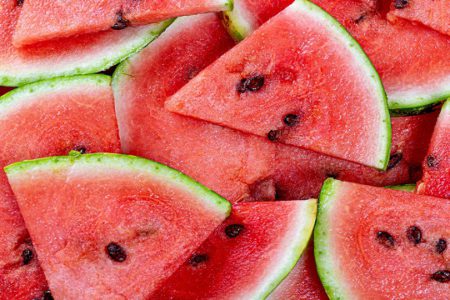
Proper nutrition is everything for avoiding dehydration and staying healthy and active, even during the hottest summer days.
Some foods are rich in water, others very beneficial in useful vitamins; however, the sure thing is that with the following foods you never go wrong.
No.1: Green Leafy Vegetables
Green leafy vegetables should be the basis of every person’s diet, in summer and winter.
It is an extremely low calorie food, while offering a variety of useful vitamins, trace elements, antioxidants and – of course – valuable dietary fiber.
In addition, green leafy vegetables are rich in water and in vitamin C, beta-carotene and folic acid offering anti-aging, hydration and freshness to tired skin.
No.2: Strawberries
Strawberries are also a fruit extremely rich in antioxidants, vitamin C, B vitamins, vitamin A, potassium and magnesium.
Their powerful antioxidants (anthocyanins, ellagic acid, camphor, quercetin) protect the skin from cancer and premature aging.
Strawberries and other berries should be included in everyone’s diet as:
- hydrate the body (consist of 91% water)
- fight cardiovascular disease
- prevent various forms of cancer
- offer health and nutrition to body
- fight obesity
- promote a healthier eating plan
- increase life expectancy
- reduce the risk of stroke
- fight hypertension
- help regulate blood sugar levels
No.3: Watermelon
Another very popular summer food choice is certainly the watermelon.
Many people consider it as the “king of summer fruits” and not with no reason.
As this is the fruit with the highest water content (almost 92%) and rich in electrolytes as well, it is an excellent choice for replenishing all the important trace elements lost during sweating.
It contains vitamin A, vitamin C, vitamin B6, potassium, a little sodium, plenty of antioxidants, lycopene and many beneficial amino acids, while being low in calories and in fat and are an ideal food for weight loss.
No.4: Cold Soups
Cold soups are an excellent choice of summer meal, light, digestible, healthy and moisturizing.
You can make your own incredible nutritional combinations to eat healthily, hydrate your body and get plenty of vitamins and energy.
Vegetable soups are clearly a very strong choice for any time of the day.
How do I realize I Need Hydration? (Dehydration symptoms)
The following symptoms (is a kind of alarm that your body needs more water immediately), given in the order they appear, depending on the degree of dehydration your body suffered:
- 1%: the feeling of thirst begins
- 2%: a more intense desire for water and loss of appetite
- 3%: severe thirst and dry mouth
- 5%: headache, loss of concentration, drowsiness
- 6%: numbness of the limbs
- 7%: gradual collapse of all body systems
- 10% and higher: serious dysfunction of organism and possibility of death

